you're not funny, you're scared of yourself
voicemail (3): on performative authenticity, imposter syndrome as a writer, and feeling like a bad person.
After performing my old Harry Styles fanfiction at an open mic, we decompressed in the hallway. “I’m glad we went first,” said Greta. “Would’ve been awkward to go after the poem about death.” We laughed. The stereotype was true: everyone at my writing camp was talented and tragic. I imagined the admissions committee discussing whether a candidate is melancholic enough, then tossing their application into bins labeled “Yes” and “No.” Anguish was synonymous with genius because in my workshop, the best poems were about racism or teen pregnancy or cancer. They punctured you in ways that New York City rats (my topic of choice) or a character named “Sexy Sam” (my character of choice) couldn’t. After they read a draft, the air held still for a moment, then an onslaught of snaps. Classic. Even in timed writing exercises, they imbued sorrow into the quotidian, describing streams as “carcassed” and seafoam as “meiotic.”
Maybe I’m obsessed with feeling special, but I was an outlier who bypassed the selection process. I’m not perpetually happy, but I can’t write about sadness. When I try, it isn’t poetic and doesn’t romanticize a barren stream. A sarcastic undercurrent always tugs my emotions—happy or sad, if it’s even possible to know—into caricatures of authenticity. Joy doesn’t exist without dramatic irony, and jealousy is always petty and unfounded. My flash fiction pieces are jokes with too many em-dashes but without a punchline—just the way I like it. Yet, when I write about myself, it feels like trying to describe an accent after traveling for years. I’m not a playwright but I leave emotion between the lines, abandoning interpretation to the actor—like how I always asked my therapist if I should feel a certain way. She told me to meditate, and I fired her because I thought therapists were supposed to tell me how I felt.
I suppose that says a lot about me. That I see my life from above, as a series of strung-together experiences, each with a “Hello, I am [emotion]” sticker slapped onto it. When I journal, I capture feelings into incomprehensible metaphors and words that I do not remember the meanings of. The sensations of life deteriorate into those words, leaving me with a lousily-curated autobiography, the only version I’d remember for years to come. That, however, is better than failing to find descriptions—the job of a writer. Between failure and reductionism, the overachiever in me always chooses the latter. Or maybe it’s easier to laugh so hard at the absurdity of pain that I forget the horrors of my life. Yeah, probably that one.
feelings aren’t cringe anymore.
With the rise of Madeline Argy, Everything I Know About Love, and Fiona Apple’s “i'm such an incredibly stupidly sensitive person,” authenticity is all the rage. I knew that, so I took a specialized workshop named “Vulnerability.” I thought the workshop could fix my sarcasm: in three hours, I’d transform into a melancholic poet even though I hated poetry.
Sometime during my first week of camp, I generated a list of “vulnerable things that I can write about (and share) without feeling like shit afterward.” Self-identifying as a former gifted kid/mirrorball/thought daughter, my list consisted of traits that belong to those identities: perfectionism, external validation, and the usual woes of girlhood. Like a satellite, the identity I performed orbited my real self, never veering too close because my world cannot crash yet. That was the moment I understood Plato’s Theory of Forms: as the separation between the satellite and its planet. I never believed in absolutes except when it came to my identity. Then, I suddenly worshipped the truth. No matter the number of “Shadow Work Journals” I completed, I cannot graduate from finding myself unless I accept that the answer is, just, being. At least according to my ex-therapist, the answer is in the body—tangible and in my possession. I don’t disagree. When I imitate myself, the impersonation becomes the truth.
“I tell Thee that man is tormented by no greater anxiety than to find someone quickly to whom he can hand over that gift of freedom with which the ill-fated creatures is born.”
Dostoevsky, The Brothers Karamazov
My first philosophy quiz asked us to interpret a quote that captured what I couldn’t admit to myself. That I obsess over “self-discovery” to procrastinate self-improvement. No, not in the 6-am-morning-routine sense. More like rinsing myself inside out as I wait for my skin cells to overturn. Once again, I found myself through patterns in my writing. In English essays, I wasted time establishing the grounds I’d argue against. I clung to the same misconception for my identity: I must find my current self before improving her.
When I reread my writing from last summer, my best attempts at authenticity were guilt-ridden—suffering the shame of self-destruction yet surrendering my will to change for the better. Not entirely unlike the shitty boyfriend who tells you “I’ll change for you,” except I’d conceded healing as a mirage. This was, in retrospect, the theme of what I called “vulnerability” that summer: another fiction I told to console my regrets. When I spoke to strangers about media—Gracie Abrams’s “Mess It Up,” Connell from Normal People, Fleabag—I hoped they’d pick up on the common thread: I cannot fight irrational impulses but pray that I won’t hurt them.
What I’ve been trying to say, I suppose, is that I felt out of place. Whenever I read aloud “poetic” writing, I became tongue-tied as if it was against my nature. I learned that shame arises when you betray your authenticity, and maybe that’s why I craved curling into fetal position every time I shared a poem. In that classroom, I never felt authentic enough. The expectation—and the social currency—of vulnerability was so intimidating that I resorted to performing. As I sifted through my list of curated identities, I described burnout like a Martian approximating an Earthly experience. Unlike what I preached, I didn’t believe my mundane experiences were worth documenting. Yet, when I reread old journals, trivial experiences shaped my most genuine entries—always with a slight embarrassment that something as insignificant as a passing remark could cause a cosmic rift in my identity. Maybe it’s because, devoid of drama, my internal world became worth examining. Or maybe I wasn’t ready to write about my past, so I resorted to mundane representations and spoke to myself through symbols.
Either way, I’ll never write like Ocean Vuong, or the girl in my workshop whose every poem felt like peaking into the flesh of an open wound. Unlike Fiona Apple, I’m not a sensitive person. And that’s fine.
call me back?
—sophia
behind-the-scenes
weekly media
books
I just finished The Girls Who Grew Big by Leila Mottley. I almost cried (too many times) because the writing was so beautiful. I also reread Hedda Gabler by Henrik Ibsen and wrote a paper about it for English Lit (yes, that’s why I’ve been MIA). Can’t recommend this play more! I also read The Dream Hotel by Laila Lalami, which spiked my anxiety. What a time to be alive! Currently, I’m reading Martyr! by Kaveh Akbar, and it’s feeling like a five-star read so far!
substack
Your phone is why you don't feel sexy
“Eros, desire, instinct, eternity”
“an autofiction piece about first loves and bad timing”
black hole dreams of being physicist
“a theory I have about truth and time and God and 4-dimensional planes”
youtube
other
I re-discovered Better Oblivion Community Center, which is one of Phoebe Bridgers’s bands; it’s keeping me sane as I wait for Phoebe’s next album.
Also, I recently discovered Psychology of Your 20s (podcast hosted by Jemma Sbeg), which has really resonated with me!
I recently discovered Fable (a book-tracking app), and it’s been such a dream to use. (Add me here)





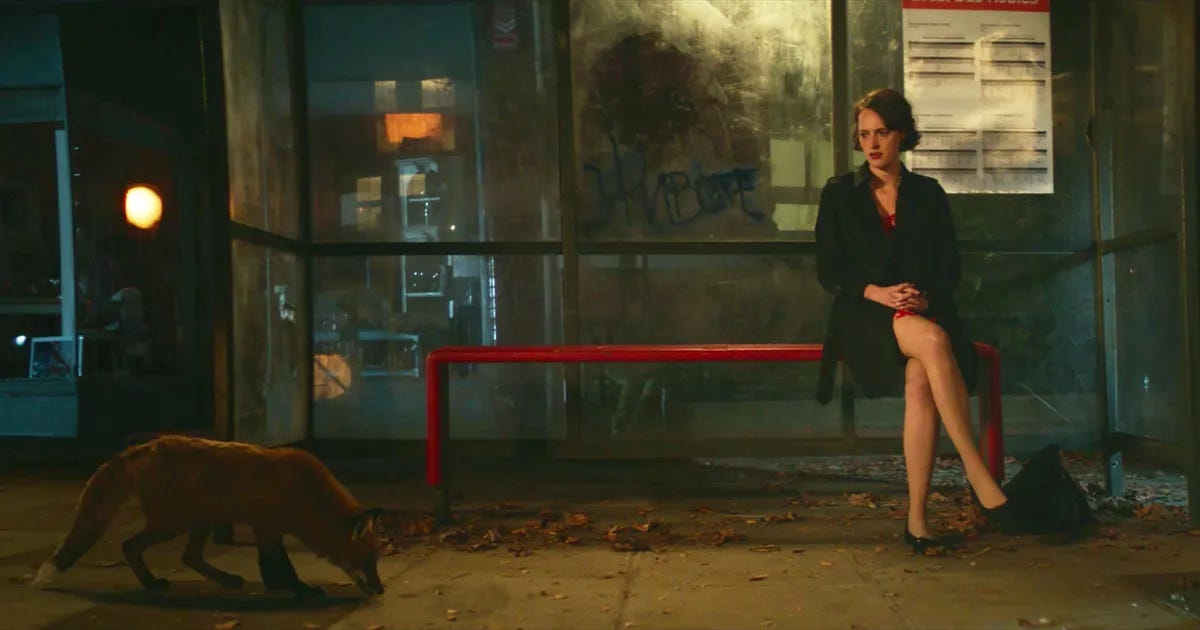

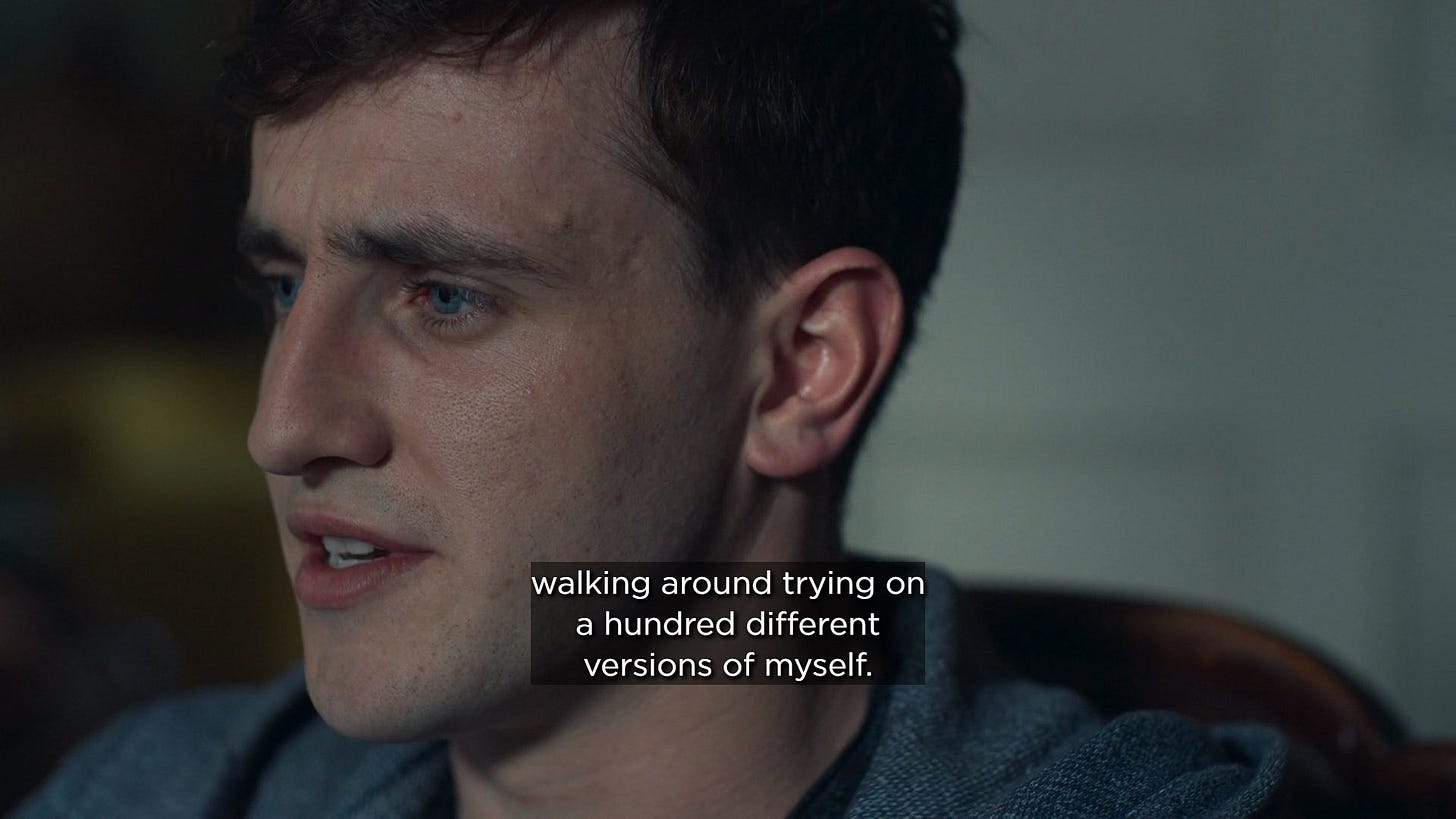
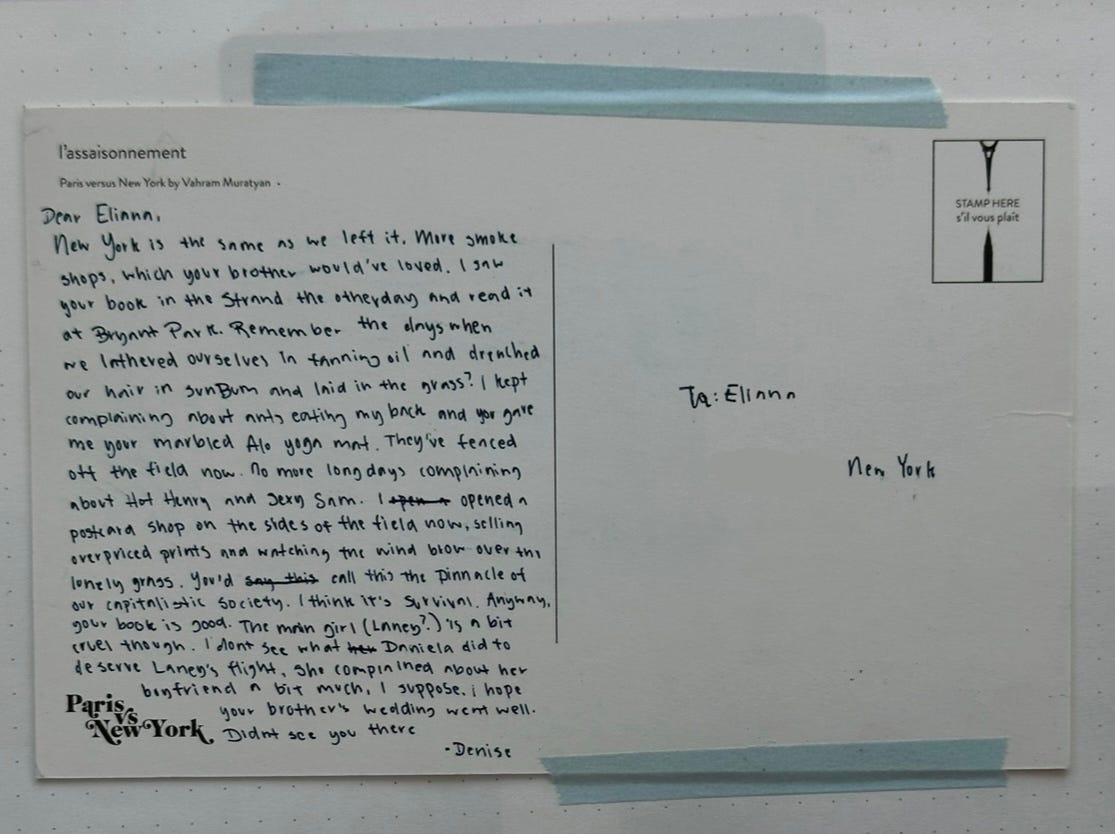
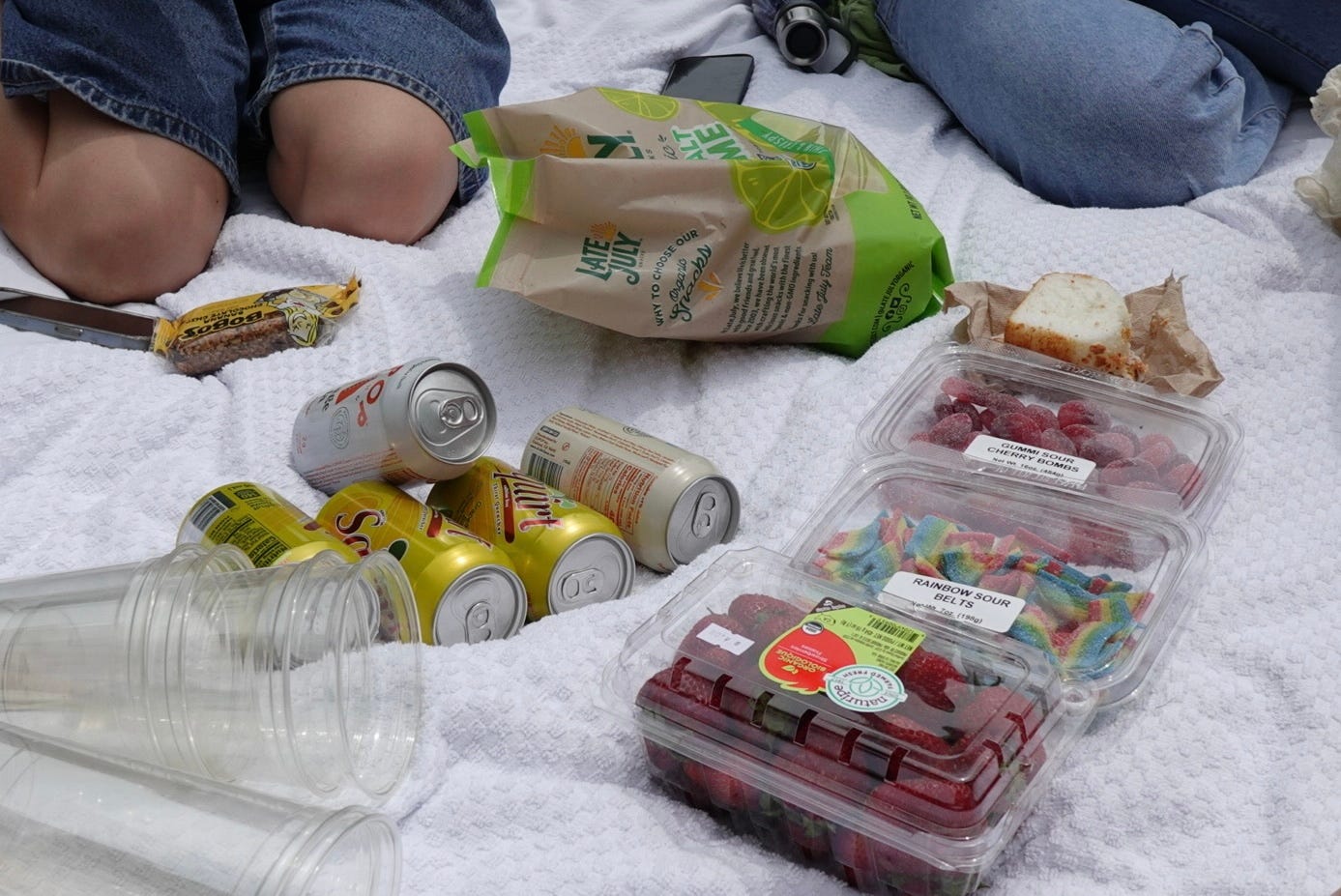
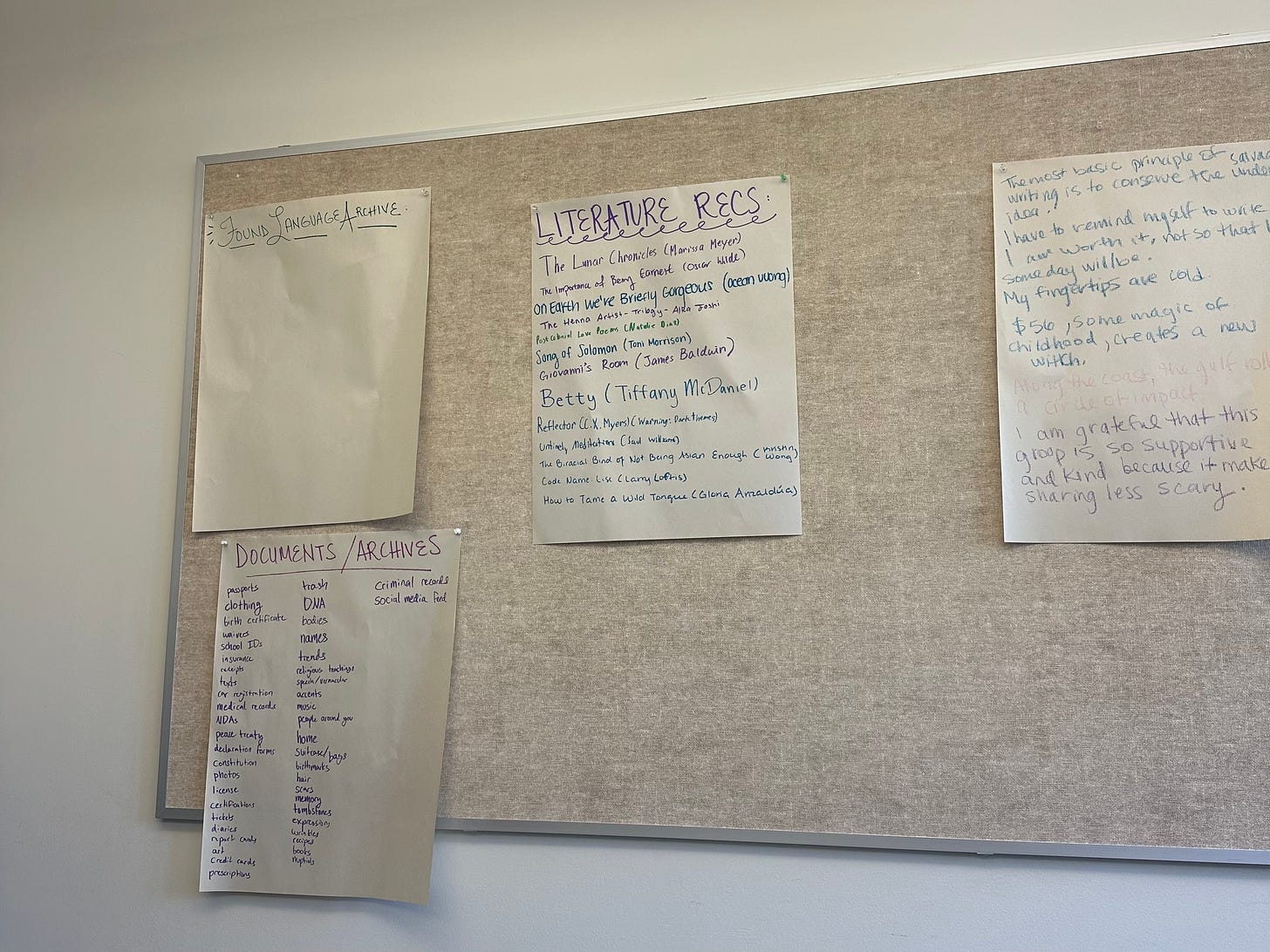
Never got a hang of this application. Just a while ago, I saw a tiktok post of yours. It pushed me to download this again, just to see what you've written. Officially giving substack another try because I liked your work (and recommendations) !!
this is brilliant!!